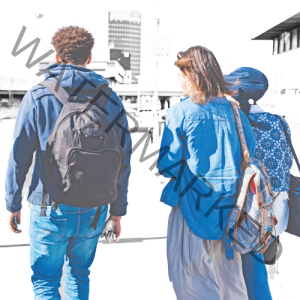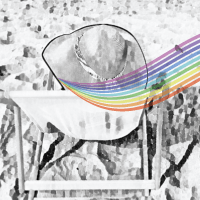- Atilla Tiriyaki
- Average Reading Time: 10 minutes
- Community
- articles, atillat
2020 has proven to be one of the most challenging years for many people in their lifetimes. Even though we were warned of a potential pandemic for years, it seemed to come out of the blue and escalate quickly. The scale of pandemic scale and the impact it has had, shocked and surprised us all. With domestic and international travel halted and non-essential retail businesses closed for months, many have had their jobs become displaced or seen mass unemployment. News reports of large, well-known companies going under and the constant fear of contracting a deadly disease constantly in the back of our minds, all factors that have been challenging people’s mental health. However, there is still hope for a better future. Let’s explore what 2021 might look like across the world
Who gets the vaccines and when is purely based on need. The first group to receive the vaccines is typically the front-line workers (doctors, nurses, etc.). They will be quickly followed by those most vulnerable (elderly and people with low immune systems). After the first two groups, it will likely be rolled out by age groups. The reality is it will probably take months if not years for the vaccine to be rolled out across an entire country, especially in counties with large populations. Still, industry experts predict that most countries could have vaccinated front line and vulnerable people as early as March 2021. The vaccines will likely be rolled out quicker in wealthier nations; however, it could take years, if at all, for the vaccine to be given to people in poorer countries.
For the virus to be managed and under control, it is vital that everyone worldwide becomes vaccinated. If not, anyone who travels to a country with a low vaccination rate could contract a new strain of the virus and reintroduce it back into virus-low countries in the future. Not to mention the devastation it would have on those poorer and hard-hit countries. To vaccinate or not to vaccinate likely will not be an option. Of course, some might choose not to take the vaccine. However, it might result in them not being able to travel, work, or even their ability to access essential services. An example of how this might work is yellow fever. All those countries at risk of the disease require travellers to become vaccinated before arrival. All visitors must produce and carry a certificate to show upon entry into that country. Failure to get vaccinated or present the certificate can result in being turned away.
The most exciting factors relating to the vaccine is the nature of the disease and how the COVID-19 vaccines could create positive developments for other killer diseases. A vaccine for the COVID type viruses in the past was problematic given how the virus attacks the immune system and how quickly it spreads throughout the body. Though the virus is often compared to the influenza flu, it also has similarities and characteristics to HIV and other immune diseases. That does not mean a cure for HIV now exists, just because a COVID-19 vaccine has been found. Instead, it could mean that the research and lessons from the clinical trials could be used to help advance medicines relating to those other deadly diseases.
The technology and means for working from home have been around for some time, with many companies spending years working and planning on implementing the change to working practices within their business. In addition to the logistical challenges for employers, some employees have been resistant, preferring the office environment. Historically, it had offered them the ability to get away from distractions and get out of their homes for long periods of the day. Though working from home can be a positive experience for some, for others, it can negatively impact their lives, especially those who are lonely. The adverse effects to those whose office life is a lifeline are one reason why some have been so resistant to it over the years. All of the companies’ trials and even previous plans were thrown out of the window when COVID-19 hit. Many businesses no longer had the option to home-work or not. COVID-19 has shown businesses that they can work successfully from home, allowing companies to iron out potential issues. For staff previously resistant to change, it also has given them a chance to see that it can be done and that it is not as bad as it first seems.
Home-working will likely not replace the office environment in the short term. However, it is expected more people will begin working from home more frequently once the pandemic ends. The reality is for most countries; is it has shown that telecommunication companies need to further invest in improving their infrastructure. The need to improve in key areas such as home broadband connections has also created new markets for tech companies developing video conferencing and home-working software solutions. Digitalisation in the past has been a significant obstacle, given that so many businesses still use paper for contracts and mail received from clients. Converting paper documents to a digital form is a must for home-working. For many companies, it will require them to invest in hardware, technology, and staff training.
Those who invest quickly see the benefits, starting with better indexing in locating files. The life and quality of documents are preserved longer, and the ability to move documents around from point A to point B instantly. Good quality solutions are not as expensive as they once were. Many are now affordable and readily available to small to medium-sized businesses. One of the most significant issues and obstacles around digitalisation relates to official documents, an area in which many governments have been investing heavily in digital infrastructures for some time. Many courts, lawyers, and businesses still need paper-based documentation for documents requiring a physical signature, which still poses a real problem.
Simply put, digital processes are cost-effective, more efficient and kinder to the environment as less paper is used, resulting in fewer trees being cut down. Home-working does offer significant cost-saving opportunities for businesses (smaller office spaces and staff efficiencies). As well as savings for employees (reduce travel costs and time saved from travelling); however, it does not always work for every business or employee. In an environmentally conscious world, home-working has a significant impact on the environment. However, companies need also to consider their staff’s mental health. Technological solutions need to be developed, but so do the tools and approaches for keeping staff happy, engaged and healthy when home-working.
The businesses that failed during the pandemic typically fell into three categories. The first was those businesses that have been unable to evolve throughout the digital era, with web and postal sales dominating the markets. The second fell into cash flow problems, whether due to expansion plans or the firm’s accounting practices. Firms in this group will typically hold significant value in their business. However, they likely had little or no liquidity, meaning they could not access or have cash available. The third and final group relates to small-to-medium enterprises, and that given how long the lockdowns have lasted, many were unable to survive with little income for so long. The sad reality is that we have lost so many well-known businesses and those run by individuals who failed for no fault of their own.
2021 could see some of these businesses reappear in different guises and under new management. For some time, there has been a shift to an online, postal and package related retail space. Unfortunately, for traditional store-based businesses, the nationwide lockdowns have only strengthened the demand. Typically, converting people that were previously resistant to using these ways of purchasing goods and services in the past. Many large online retailers have already announced that they are looking for more staff in their distribution centres. In addition, there is also an increased demand for professional drivers to facilitate customer deliveries. These announcements present an opportunity for many retail workers displaced due to the pandemic. Many will likely find new opportunities with these types of online businesses.
Taxing of these global multinationals will also likely be a big theme of 2021. Many online companies have seen phenomenal growth, especially regarding their popularity and demand. With more money being spent by consumers, governments will make sure that these companies pay more in taxes, shutting down and reducing legal loopholes, especially around where the business is registered or where the parent company is located. We are already seeing the EU reviewing the introduction of a digital tax to combat these types of problems.
Brexit has dominated the news for the past four and a half years for Europeans and the UK. Good or bad, the transition period will end on the 31st of December 2020. Whether the UK has a deal with the EU or not, the main benefit will be the end to all of the countless news items, uncertainty and pundits predicting the future. Hopefully, also be an end to a divided nation, frustration and division, with the UK beginning to operate in its new reality outside of the EU. President-Elect Jo Biden will be inaugurated on the 20th of January 2021. His presidency is already seen as a return to normality, a return to centre-left politics, which for many, has been sorely missed over the past four years. Hopefully, in 2021, we will see a calmer period and building relationships rather than isolation and instability.
With only weeks to go until 2021, we do not have long to wait to find out what happens. However, I wish you all a very merry Christmas. I hope that 2021 brings you and your families health, happiness and prosperity
Interactive Airport Terminal Maps
More from Gayther
Discover all of the exciting and entertaining articles written by people from the worldwide LGBTQIA+ community, sharing their stories, opinions and experiences in their own style and from their unique perspectives























